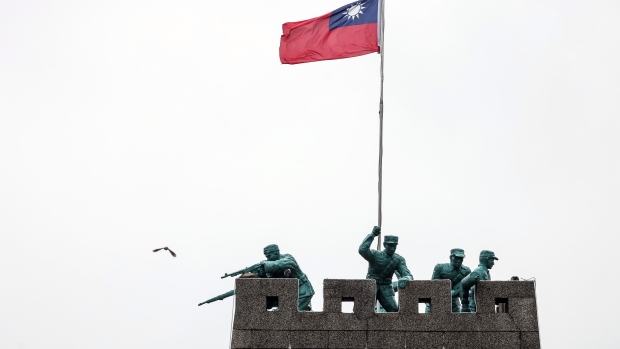Jul 1, 2024
China to Step Up Detentions to Squeeze Lai, Taiwan Officials Say
, Bloomberg News

(Bloomberg) -- China is likely to detain more Taiwanese people under a law that targets supporters of independence in a bid to pile pressure on the new president, senior security officials from the island said.
A recent move by Beijing to flesh out the law amounted to weaponizing domestic legislation against Taiwan, the two officials, who asked not to be identified discussing the sensitive issue, said at a briefing in Taipei on Friday. The officials were speaking based on assessments made by Taiwan’s national security apparatus, rather than any intelligence they had gathered.
There have been 15 detentions in recent years, the officials said. Taiwanese could be taken into custody in China, they added, or in places that had extradition treaties with the nation, though that scenario hasn’t happened yet. Any detentions would worsen cross-strait ties, they added.
The comments signal China may be adding to its playbook for showing its displeasure with Lai, whom it sees as pushing for independence for the US-backed island it has vowed to control eventually, by force if necessary.
China resorted to a range of moves to pressure Lai since he won election in January. It peeled off one of its last diplomatic allies, Nauru, and then held its most expansive military drills in a year around Taiwan just days after Lai took office in May. China also condemned Secretary of State Antony Blinken for extending his congratulations to Lai on taking office, and hit five Taiwanese political commentators with largely symbolic sanctions because they had “incited hostility and confrontation between the two sides of the Taiwan Strait.”
Last month, Taiwan hiked its travel warning for China to the second-highest level, citing Beijing’s decision to expand laws that threaten “separatists” from the island with the death penalty. It said that recent incidents of Taiwanese people being detained in China were a factor in raising the alert level.
Beijing is still holding a Taiwanese man whose boat got lost in fog in waters near China in March. The man was serving in Taiwan’s military when he was detained, though his family asked for and was granted his discharge, a move that may be aimed at facilitating his release.
Travel across the strait has struggled to recover since the pandemic but there is some travel between the two sides. While Taiwan sits some 100 km from China, many of the islets it controls are much closer, bringing their people into close contact.
In 2017, a Chinese court sentenced a Taiwanese democracy activist to five years in prison. Lee Ming-che was found guilty of subverting state power following a visit across the strait.
©2024 Bloomberg L.P.







